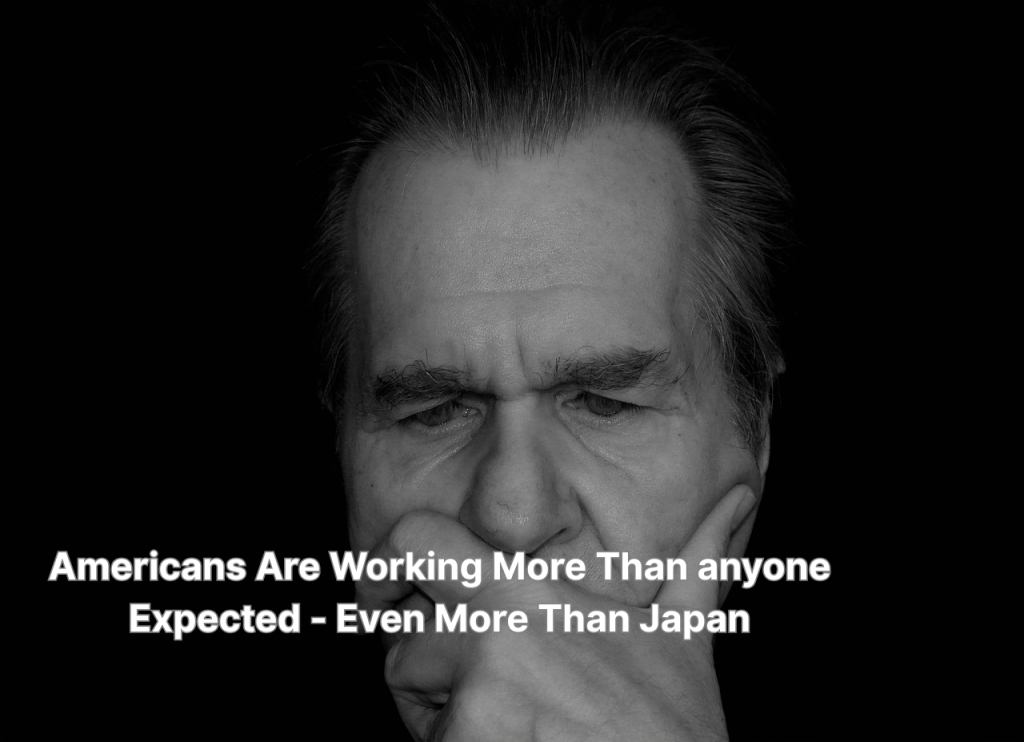Americans Now Log More Hours Than Japan—Here’s Why That Matters
In a twist that challenges long-held assumptions about global work culture, new data reveals that American workers are now clocking in more annual hours than their Japanese counterparts.
For decades, Japan was often seen as the symbol of extreme work culture—complete with stories of overtime, minimal vacation, and even the tragic phenomenon of “karoshi” (death by overwork). But in recent years, the landscape has shifted. According to publicly available labor statistics, including OECD data and Wikipedia’s compiled averages, the average American employee is now working more hours per year than the average worker in Japan.
How Many Hours Are We Talking About?
As of recent data, American workers average around 1,791 hours per year, compared to 1,607 hours for Japanese workers. That’s 184 more hours—roughly equivalent to working an extra 23 full workdays each year.
Here’s how some countries compare (approximate figures):
Mexico: 2,226 hours/year
United States: 1,791 hours/year
Japan: 1,607 hours/year
Germany: 1,341 hours/year
France: 1,402 hours/year
What’s Driving the U.S. Work Surge?
Several factors contribute to this trend:
Fewer vacation days: Unlike in Japan and Europe, many American workers don’t have mandated paid leave—and those who do often leave time unused.
Gig economy pressure: Freelancers, part-timers, and side hustlers are working extra hours to make ends meet.
Remote work blur: The rise of remote jobs has led many to work longer, with no clear boundary between “on” and “off” time.
Japan’s Work Culture Is Shifting
While Japan once led the world in working hours, societal shifts and government reforms are encouraging better work-life balance. Initiatives aimed at reducing overtime and promoting mental health have led to modest but meaningful changes in daily work expectations.
This cultural evolution may explain why Japan’s numbers have steadily declined, even as the U.S. maintains or increases its pace.
Is More Always Better?
While the numbers suggest productivity, they also raise questions about burnout, mental health, and long-term sustainability. Experts argue that longer hours don’t necessarily mean more output—and over time, they can reduce efficiency, creativity, and even life satisfaction.
With the U.S. continuing to lead in hours worked among developed countries, many are wondering if it’s time for a nationwide reset.
Final Thoughts
In the battle of work ethic vs. work-life balance, America may be winning in hours—but perhaps losing in wellness. This surprising data invites all of us to ask: What are we really working for—and what are we giving up in return?
FAQ
Q: Is it true Americans now work more than the Japanese?
Yes. Based on international labor data, U.S. workers now log more hours annually than Japanese workers.
Q: Why does Japan work fewer hours now?
Government policies, societal changes, and corporate reforms are slowly shifting the culture toward better balance.
Q: Does working more mean better productivity?
Not always. Studies show that after a certain point, longer hours can reduce effectiveness and increase stress.

